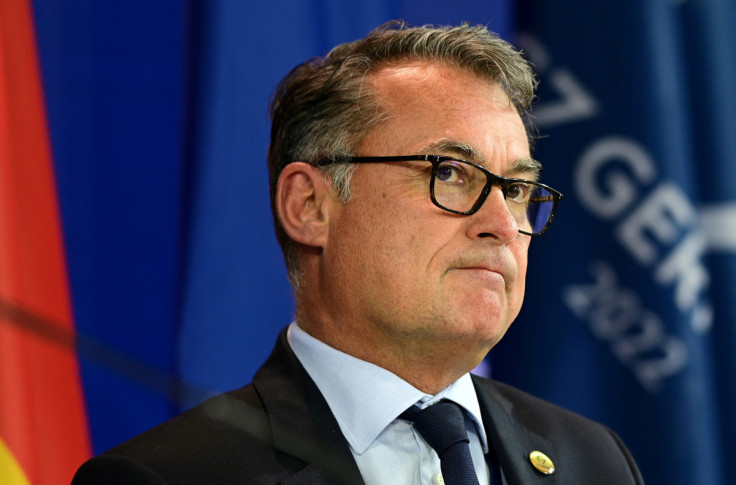ECB's Top Shareholder Germany Objected To Aid For Indebted States-sources

Bundesbank President Joachim Nagel objected to the European Central Bank's promise of fresh support for the bloc's indebted south at an emergency meeting last month, reviving a divide between the ECB and its biggest shareholder, sources familiar with the matter told Reuters.
ECB policymakers pledged to buy more bonds from debt-laden countries at an unscheduled meeting on June 15 to contain a widening spread between their borrowing costs and Germany's as the central bank prepares to raise interest rates.
But Nagel disagreed with that decision, arguing that the ECB's focus should instead be on fighting high inflation, said three sources, who asked not to be identified because Governing Council deliberations are private.
Spokespersons for the ECB and the Bundesbank declined to comment for this story.
The virtual meeting was called with only a few hours' notice, meaning governors had little time to review preparatory documents and not all of them could attend, the sources said.
ECB policymakers who have spoken since the meeting, including Belgium's Pierre Wunsch and the Netherlands' Klaas Knot, two key policy hawks, have backed President Christine Lagarde's pledge to fight fragmentation.
This meant that Nagel's opposition was unlikely to prove an insurmountable hurdle.
But it was the first visible disagreement between Nagel and Lagarde since the former took office in January.
The Bundesbank was for years the biggest critic of the ECB's easy-money policy under Nagel's and Lagarde's respective predecessors - Jens Weidmann and Mario Draghi.
Lagarde and Nagel have since tried to patch up those differences, with the former giving national central bank chiefs a bigger say in policy meetings and the latter refraining from publicly criticising decisions.
But Nagel has come under pressure at home over the highest inflation-rate since the 1970s and the perception that ECB policy was designed to support indebted states such as Italy and Greece rather than keep prices in check.
The ECB is trying to bring down yield spreads by using proceeds from maturing bonds in Germany, and other north European nations, to buy more Italian, Greek, Spanish and Portuguese debt. It is also working on a new tool to buy even more southern European bonds with fresh money.
This will likely leave Germany falling below its quota of the ECB's bond holdings, as the purchases of peripheral bonds are unlikely to be matched by larger buying of core paper in the future, the sources said.
In addition the Bundesbank would suffer losses if it was forced to sell German bonds to offset purchases of debt from elsewhere - although such sales are unlikely for now.
Sources have told Reuters the ECB would sooner drain cash via "liquidity-absorbing" auctions for banks, rather than outright bond sales.
The new instrument to buy more southern European bonds is likely to come with conditions, such as that a country's debt is deemed sustainable by the ECB or that it complies with the European Commission's fiscal rules and economic recommendations.
(Editing by William Maclean)
Copyright Thomson Reuters. All rights reserved.





















